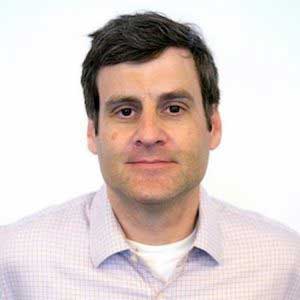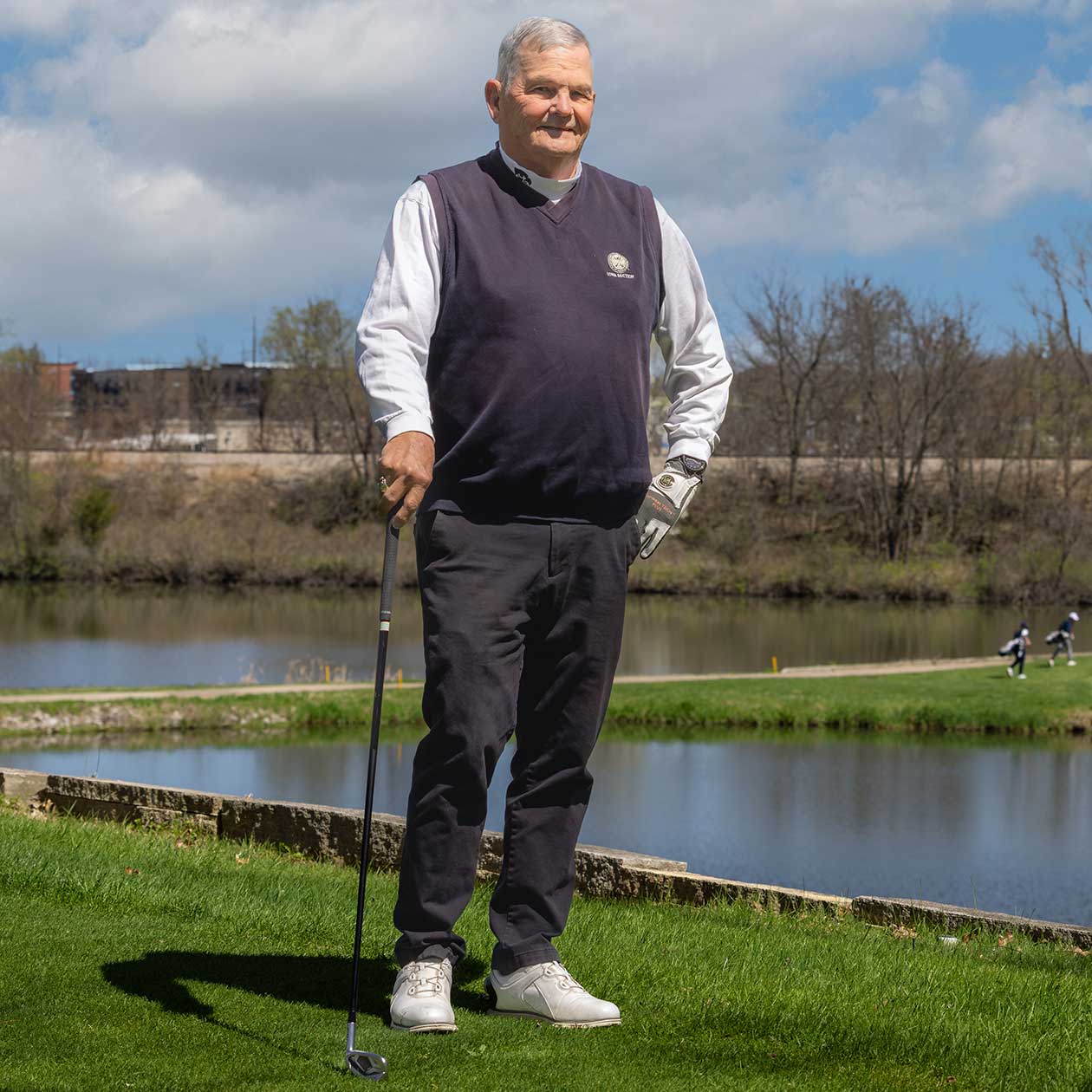At St. Andrews, an Iowa Alumnus Guides Veterans Out of the Rough
In winter 2008, Don Snyder left his Maine home for a trip to Scotland, motivated by a pledge to his son and a hope that a change of scenery would help him shake off a “darkness” that had descended upon him in middle age.
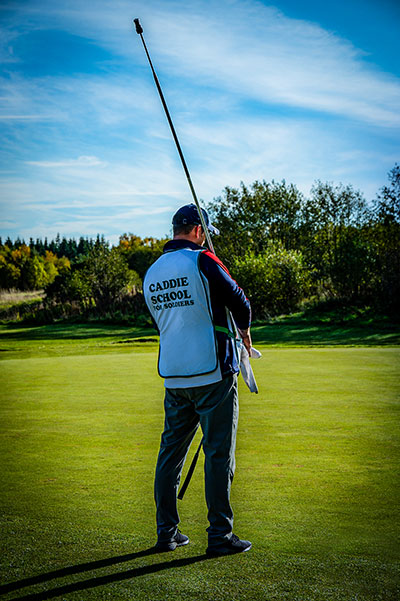 PHOTO: COURTESY THE CADDIE SCHOOL FOR SOLDIERS Association
Since its founding by Iowa alumnus Don Snyder in 2019, more than 30 military veterans have participated in the Caddie School for Soldiers in St. Andrews, Scotland.
PHOTO: COURTESY THE CADDIE SCHOOL FOR SOLDIERS Association
Since its founding by Iowa alumnus Don Snyder in 2019, more than 30 military veterans have participated in the Caddie School for Soldiers in St. Andrews, Scotland.
Three of his four children were grown and gone, their empty rooms a daily reminder time was ticking away. After graduating from the Iowa’s Writers’ Workshop, Snyder (86MFA) had written seven books and a screenplay for a movie starring Gary Sinise. Reassessing his life’s work at 58, however, he felt none of it had matched his ambition.
But the thing that gave his darkness a “weight,” he says, was a discovery that his mother, who died 16 days after giving birth to him and his twin brother at age 19, had known the peril of taking her pregnancy to term. Researching a memoir of his parents’ brief love affair, he learned she had sacrificed her life so her sons could live. He was still haunted by the loss.
In Elie, a small coastal town north of Edinburgh, Snyder wrote in the early morning and walked the town’s golf course during the day, toting a bag filled with rocks from the North Sea shoreline along with his clubs. He was training to be a caddie to honor his commitment to carry the bag of his son, Jack—a golfer at the University of Toledo—should he make a professional tour. Snyder’s six-week stay eventually turned into six months when he got a job at the nearby Kingsbarns course, not far from St. Andrews, golf’s famed birthplace. He felt his spirits begin to rise on the “loops” he took each day and in the camaraderie of the clubhouse.
“It was the brotherhood of my fellow caddies that lifted me,” Snyder says. “I looked forward to seeing them each day. And it was also the chance to leave behind my own story and enter the story of the person at my side who I was caddying for.”
Jack later decided to not pursue a golf career, but Snyder thought about his experience as a caddie in Scotland years later when he read about soldiers who returned home and struggled to readjust to civilian life after deployments in places like Afghanistan and Iraq. A Brown University study in 2021 found that 30,177 U.S. soldiers had died by suicide since 2001—compared with 7,052 who died in fighting in post-9/11 combat.
Thinking of the benefits he got from caddying, Snyder opened the Caddie School for Soldiers in 2019 in St. Andrews with help of sponsors including the Kohler Co. More than 30 soldiers have graduated from the month-long residential program, which helps veterans from the U.S., Canada, and United Kingdom work through physical injuries and post-traumatic stress by training them to be caddies. Snyder is working to raise a $4 million endowment to expand the school, which now has a permanent 10-bedroom home at St. Andrews. This year he hopes to bring the first female veterans through.
“You have to find some way to believe in yourself enough to keep going, to keep trying,” he says. “That’s really the battle that we face with the soldiers when they first arrive. You can look in their eyes, and you can see that they’ve lost their belief in themselves, in their own value. You have to build that back into them.”
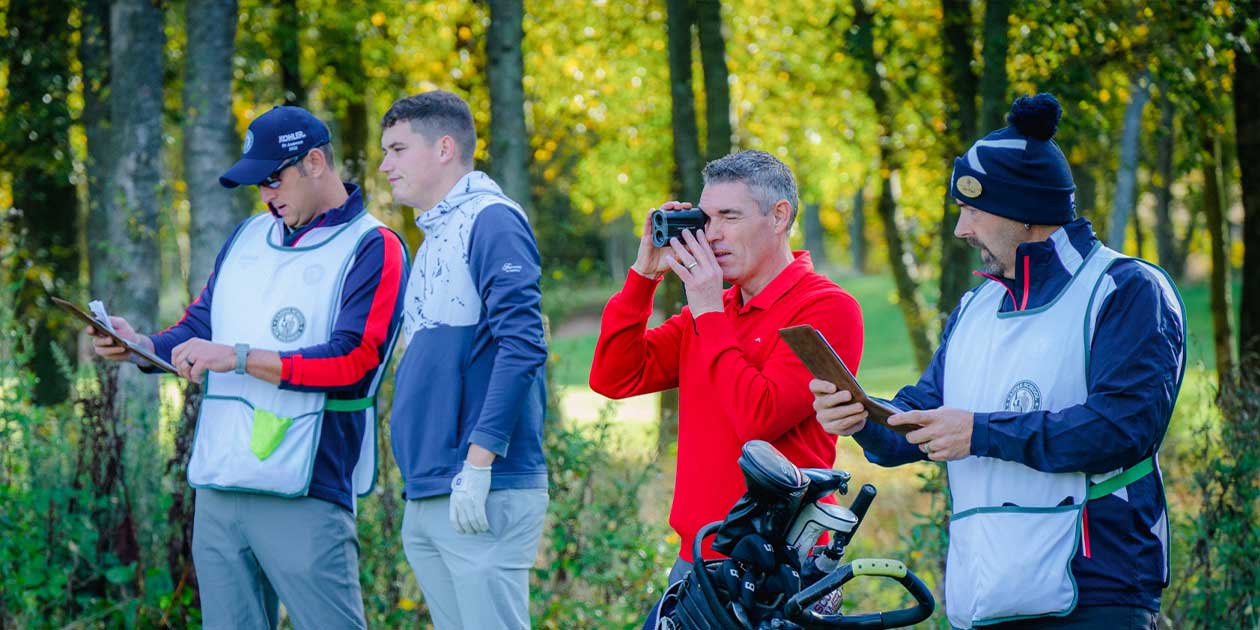 PHOTO: COURTESY THE CADDIE SCHOOL FOR SOLDIERS
After their month-long training, many program participants go on to caddie professionally at some of the world's top courses.
PHOTO: COURTESY THE CADDIE SCHOOL FOR SOLDIERS
After their month-long training, many program participants go on to caddie professionally at some of the world's top courses.
A Sense of Purpose
You might think of caddying as a quaint vestige of the past, a service that outside of the professional tours has been replaced by golf carts—or perhaps something the sons of dentists do at their local country clubs. You wouldn’t be wrong. More than 90% of caddies in the U.S. are teenagers, according to the National Golf Foundation.
But that type of caddying is just carrying bags. The caddies Snyder’s program produces are the sporting world’s version of a military officer. They navigate bunkers and other hazards, breathe confidence into their charges, and plot strategies of attack. Each day, they are motivated by a mission: to get their golfers around a course in the fewest strokes possible.
Soldiers who come through the program have faced real hazards, of course. They’ve lost limbs, suffered concussions, torn muscles and ligaments, and sustained other injuries that continue to cause pain. Most have friends who died in combat and, like Snyder with his mother, struggle with survivor’s guilt.
Yet participants say that in caddying they find a sense of purpose that reminds them of the service. In some cases, the graduates also find a new way to make a living, one that’s outside in lush, verdant settings and presents new challenges each day.
Luke Cyr says he still felt unmoored when he joined the school in Scotland last year. Just a few days before arriving, the Canadian Armed Forces veteran had completed an eight-week stay at a treatment facility after he attempted to take his own life. By then, he had been out of the service for nine years, but the mental wounds he managed to suppress in school after his service and then as a personal support worker eventually began to surface.
“You don’t feel normal around anybody else,” says Cyr, who served 13 years, including deployments to Bosnia and Afghanistan. “You just go shut yourself away and eventually just find a comfortable spot alone.”
At the school, Cyr swapped stories with his classmates at night and learned the finer points of caddying by day. Soon, he felt an old sense of service and mission return. “The better you do, the better he does,” Cyr says of the relationship with his golfer. “You meet someone who normally shoots 91, and then you get them around [the course], and they shoot an 83; I mean, they’re looking at you like you’re some kind of messiah.”
A Simple Act
In conversations with the soldiers, Snyder has found that their struggles often lie in the shallowness of the relationships they develop in civilian life, as opposed to the intense bonds they had in the service. One soldier told Snyder that their conversation was the first time in a month that someone had talked to him without looking at their phone.
Graduates of the program say they begin to feel better almost immediately when they arrive in Scotland and begin to swap stories around a dinner table with five other people who share similar experiences. Snyder limits each group to six soldiers, and veterans don’t have to be golfers to apply. The program, which is led by a professional caddie on the Duke’s Course above the town of St. Andrews, is free for the participants.
Sean Sutherland completed seven tours in 14 countries, including in Bosnia and Afghanistan, during his military career with the Canadian Special Forces. He suffered several concussions but says his PTSD has more to do with the friends he lost in combat. “You have to accept that you can’t save everybody. That was the hardest thing,” says Sutherland, who owns a carpentry business and now also serves as a mentor at the Caddie School. “We talk about all of this stuff in Scotland for 30 days. It’s sharing it with six other guys who are just as f----- up as I am, or worse.”
The sense of fellowship extends to the golfers they take on too, Sutherland said. “The spirit of walking around that golf course—it’s serene, quiet. You have the birds and the bees flopping around, and you’re walking with this person. It’s powerful.”
Steve Ogilvie has served 24 years with the Canadian military in places like Kosovo, Bosnia, Afghanistan, and Ukraine. Post-traumatic stress from his service nearly fractured his relationship with his wife, who had asked him to leave their home, separating him from his 2-year-old son.
But Ogilvie says he felt revived by the open air and the simple act of walking with someone and sharing stories over a loop. “You just feel that brotherhood, like the fire team partner that you had in the military, I have this in a golfer now,” Ogilvie says. “It’s the two of you; we’re going to get through this course together, and we’ll finish these 18 holes and maybe go to the 19th and have a drink and celebrate the round.”
Since returning home from the program, Ogilvie has reunited with his family in a new house and—in what is perhaps the ultimate measure of his mental health as a Canadian—is back playing hockey again.
Always in Sunshine
While the program lasts 30 days, Snyder also works hard to find the soldiers jobs after they leave, a critical piece of their recovery. Cyr, Sutherland, and Ogilvie have all caddied at Cabot Cliffs and Cabot Links, an almost absurdly beautiful setting that looks out at the Atlantic Ocean’s expanse from the high coastal cliffs of Nova Scotia. Other graduates have worked at St. Andrews’ Old Course, Royal Liverpool, Royal Portrush, and Coral Creek in Florida.
The world’s best courses still employ skilled caddies who can read greens, judge distances, and quickly size up what their golfers are and aren’t capable of doing. The program has enough demand that Snyder says it has the potential to become a caddie factory. Some graduates have the ambition to work on professional tours, but you don’t have to carry a bag for Rory McElroy to earn a living. Snyder says he made about $40,000 in cash over the 187 days he worked as a caddie in Scotland more than a decade ago.
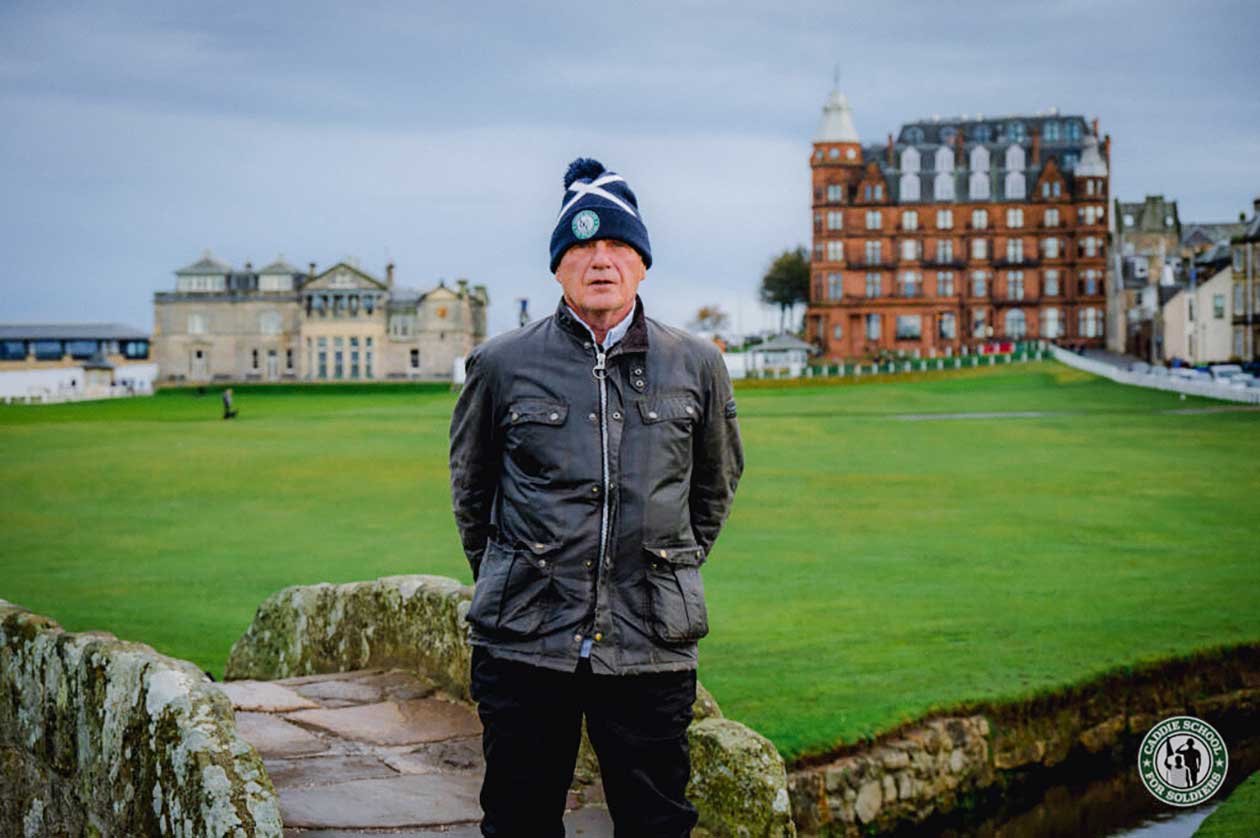 PHOTO: COURTESY THE CADDIE SCHOOL FOR SOLDIERS
Iowa Writers' Workshop alumnus and author Don J. Snyder serves as founder and chief executive director of the Caddie School for Soldiers.
PHOTO: COURTESY THE CADDIE SCHOOL FOR SOLDIERS
Iowa Writers' Workshop alumnus and author Don J. Snyder serves as founder and chief executive director of the Caddie School for Soldiers.
Paul Bonny served 14 years in the British Army’s Royal Military Police. In 1999, he was deployed to Kosovo, where returning Albanians were taking revenge on Serbians who had moved into their old neighborhoods. He said he helped investigate 17 murders in one month. In 2004, out of the military and then a member of the Northern Ireland police, he was diagnosed with PTSD. After a mild stroke in 2015, and with a host of other injuries from his time in the service, he was medically retired from the force two years later.
Not only was the Caddie School therapeutic for Bonny, it was also a “career-changing opportunity,” he says. Since then, he’s caddied for the Women’s Irish Open and at the Honda World Invitational at his home course in Galgrom, Northern Ireland.
“I love being out on the golf course every day,” he says. “When you’re talking about tournament caddying, the tour follows the sun, so, you’re always in sunshine.”
Connecting Through Stories
Snyder was never a soldier but has always held them up as heroes. His father was a World War II veteran, as were many of the men of his childhood who had thick arms, rudimentary tattoos, and stories from overseas. He was a star athlete in football and baseball and earned a college scholarship that spared him from the Vietnam draft. “It was 40 years before I began to think that someone had gone in my place,” he says.
Soldiering has been a theme in his work. His first published book was A Soldier’s Disgrace, an investigation into the case of Maj. Ronald Alley, who was found guilty of collaborating with the enemy while a prisoner during the Korean War. Snyder argues that the decision was a grave injustice. His latest book, The Tin Nose Shop, is a novel about a place in England where World War I veterans with horrible facial injuries were fitted with masks.
The world wars were bigger and more destructive, yet the soldiers in them, Snyder thinks, had a certain advantage in their recovery in that they returned to communities wholly invested in the fate of their sons overseas. Snyder believes sharing stories helps build connections that can alleviate the weight we carry, and he talks with the former soldiers about his own difficulties managing what he says is the gap between life’s expectations and reality.
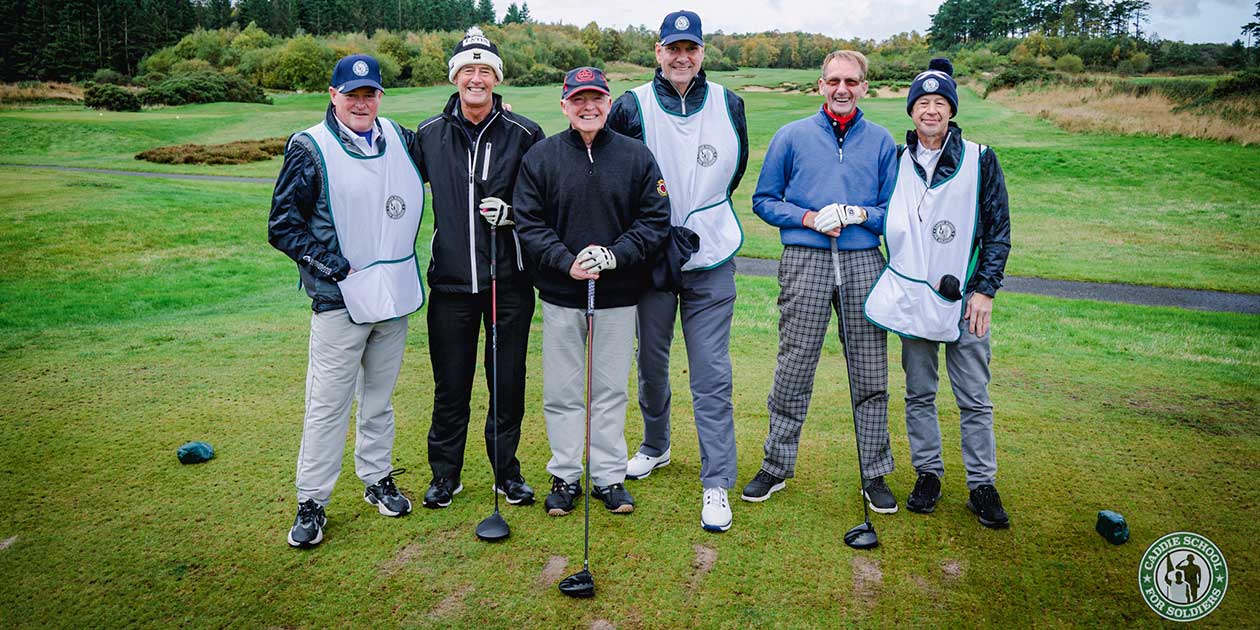 PHOTO: COURTESY THE CADDIE SCHOOL FOR SOLDIERS
Snyder says veterans not only bond with each other and the golfers they assist, they often find a new sense of purpose at the school.
PHOTO: COURTESY THE CADDIE SCHOOL FOR SOLDIERS
Snyder says veterans not only bond with each other and the golfers they assist, they often find a new sense of purpose at the school.
Finding Meaning
Snyder tells a story from his own experience as a caddie about a former collegiate golfer in his 50s who was suffering from multiple sclerosis. Before the man teed off, he told Snyder that this round would be the last with his son. Snyder, in addition to carrying the bag, had to help the man around the course.
At the end of the round, Snyder set up to take a picture, but he noticed the son fidgeting around his father’s face. He soon realized the son was wiping his father’s tears away.
Being a caddie provides the opportunity to witness poignant moments like that, he says.
“My theory as a writer is that people can buy what they want at will, or they can even buy what they need,” says Snyder. “But they can’t buy what they are longing for, and what they are longing for is meaning.
“The darkness in time will heal if they find meaning. They will find meaning in caddying.”
